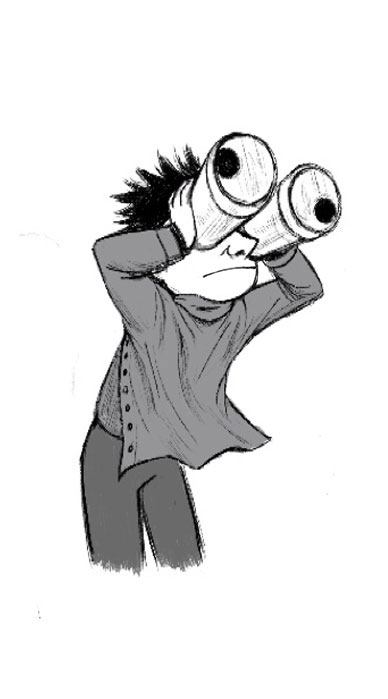CASE STUDY OF FRUSTRATED EXPECTATION: The Inheritance
Simon, single, mid 50s, a cheerful person. Today he seems depressed. During coffee in the old center of town, he talks about what’s upsetting him:
The Situation
„I’m shocked. My mother just told me that she won’t sign over the house to me. For ten years I’ve been looking forward to the house that once belonged to my grandparents, the house I was born in. I was hoping, one day, to spend my retirement there – leave the city apartment and live in the green countryside, maybe even buy an old timer (there’s a garage there). But now my mom has informed me that she’d prefer to leave half the house to my sister, even though they haven’t been in contact for years. Suddenly, that totally doesn’t seem to matter to my mother anymore. Now I can forget my dreams. I can’t afford to buy out my sister for the other half. I’m trying to concentrate on other things, but it’s all I can think about.”
IDENTIFY THE EMOTIONAL HINDERER

© „Frustrated Expectation“ Judith Hornok
Attention: Here’s where “Frustrated Expectation begins to influence Simon (looking through the spyglasses, awaiting the “promises” to be fullfield): “What am I supposed to do now? Should I even try to convince my mother to leave the house to me? Only two weeks ago she insisted on how important that was to her. And now?” Simon is beginning to get angry and upset. “Frustrated Expectation” is gnawing at Simon: “Why isn’t she keeping her word? It doesn’t make sense! She’ll never decide in my favor. I feel helpless and have lost all hope.”
Sharpen your awareness – apply a technique
Before these thoughts make you crazy, because you constantly have to think of everything that has gone wrong, that has not turned out as you expected, consider these tips from experts to deal with your disappointment; to find peace and to bring your world back into balance.
Expert tips from brain researcher Dr. Jill Bolte Taylor:
Brain researcher Dr. Jill Bolte Taylor, who had a stroke in her left cerebral cortex in 1996, experienced a new dimension of consciousness. She realized what a fantastic feeling it was to be in the right side of the brain – how relaxing it felt.
As an explanation: The left brain helps us organize information in the external world and systematically makes judgements of right/wrong or good/bad. Our left brain circuitry is our stress circuitry, the tool we use to control and create order in our world.
The right brain processes information about the present moment, so this is a terrific tool to help you purposely shift your consciousness into the present moment – and prevent persistent negative thoughts.

Dr. Taylor’s Advice: Use the skill set of your right-side brain.